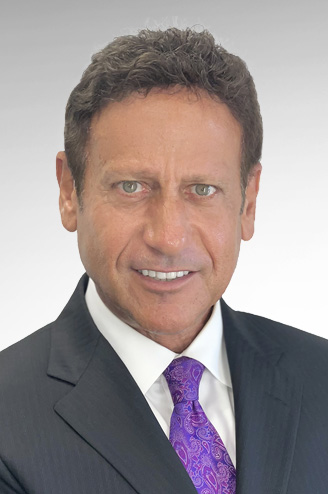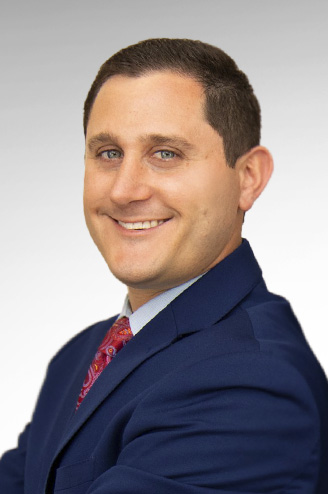New Jersey Child Pornography Lawyers
Crimes that endanger the welfare of a child are considered particularly offensive in the eyes of the law. Common examples of abuse and neglect include physical assault, abandonment, molestation, and sexual abuse. One of the most serious crimes against children is child pornography, as it exploits, endangers, and takes advantage of an innocent and vulnerable child. When a crime involves the sexual exploitation of a child, the penalties are often quite severe and can include very steep fines and lengthy prison terms. In addition, if convicted, the individual is legally required to register as a sex offender. Developing a solid defense strategy can be challenging because the courts are very protective of children, particularly when the crime is of a sexual nature. If someone has been arrested on suspicion of possessing or distributing child pornography, it is crucial that they contact an experienced criminal defense lawyer who specializes in child pornography cases.
What is Considered Child Pornography?
In the eyes of the law, a person can be charged with child pornography for sending or receiving sexually explicit images of a child who is under the age of 18. A child pornography charge is based on the following factors:
- The individual possessed or viewed images that depicted the minor in a sexually explicit act; this is a third-degree offense.
- The individual possessed pictures or video of a minor engaging in obscene sexual acts, or the simulation of sexual acts; this is a second- degree offense.
- An individual forced a minor to participate in the production of obscene material or sexual conduct with the understanding that he or she was being filmed, and that the material was reproduced for the creation of pornographic material; this is a first-degree offense.
- Child pornography can be considered a federal offense.
Penalties for Child Pornography
In the state of New Jersey, penalties for child pornography offenses depend on the nature of the offense, including whether the defendant was charged with possession, distribution, transport, or production. The following are the penalties associated with child pornography charges:
- First-degree offense: Up to 20 years in prison and a fine of up to $200,000
- Second-degree offense: Up to 10 years in prison and a fine of up to $15,000
- Third-degree offense: Up to five years in prison and a fine of up to $15,000
Is Sexting Considered Child Pornography?
Sexting is the act of sending sexual images or video to another person via text message or social media. According to federal law, sexting that involves minors is considered a form of child pornography. If a minor is caught sexting for a first-time offense, a law that was passed in 2012 may protect them from facing severe charges. However, minors who commit multiple offenses, or adults who are charged with sending or receiving sexually explicit images of children, will likely face severe penalties. Each of the following offenses can be committed by sending or receiving a sexually explicit picture or video of a minor through a text message. According to New Jersey law, the following is illegal:
- Causing or permitting a child to engage in a prohibited sexual act, or simulate such an act, if the person knows, or has reason to know, that the act will be photographed, filmed, reproduced, distributed, or reconstructed in some way
- Taking a photo of a child in a prohibited sexual act, or simulating a sexual act
- Distributing or possessing an item that depicts the sexual exploitation or sexual abuse of a child
Sexting can also be considered child pornography if the images included nudity and were meant to be sexually stimulating or gratifying to the person who received the picture. In addition, simply receiving a text message that contains pornographic images can lead to child pornography charges and forwarding this type of image to another person can result in child pornography distribution charges.
Penalties for Sexting
Penalties for sexting in New Jersey can be quite severe, depending on the nature of the crime. For example, although possessing pornographic images is a serious crime, the penalty is not as severe as it is for creating or distributing sexually explicit images or video footage. In addition to the fines and possible prison sentence associated with a sexting conviction, Megan’s Law states that a person found guilty of sexting must also register as a sex offender and face other consequences, such as parole supervision for the rest of their life. The following are penalties for each degree of a sexting offense:
- First-degree sexting: Prison sentence up to 20 year, and a fine of $200,000
- Second-degree sexting: Prison sentence up to 10 years and a fine of $150,000
- Third-degree sexting: Prison sentence up to five years and a fine of $15,000
It is important to understand that the penalties for sexting also depend on the age of the person who sent or received the image. Juvenile offenders face different penalties compared to adults. For example, if a person under the age of 18 commits a sexting crime, the case goes to the juvenile justice system, where the courts have more discretion when it comes to deciding the penalties that will be imposed. The following are examples of potential juvenile penalties:
- Warning: A juvenile judge may decide to punish a teen with a verbal warning, particularly if it is a first sexting offense.
- Fine: The amount of the fine will depend on the nature of the crime and whether it is a first offense, or the accused had multiple offenses.
- Community service or counseling: The judge may sentence a teen who is found guilty of sexting to complete community service hours or attend individual or family counseling.
- Probation: If a juvenile is on probation, he or she must attend school, report to his or her probation officer, and comply with all other court orders.
- Detention: If a teen sexting crime is more serious, or it is a multiple offense, the judge may send the juvenile to a detention center, group home, or other placement location.
Teens who are 18 years of age or older can be tried as an adult, which means that the penalties can be much more severe, including the following:
- Incarceration: A child pornography conviction can carry a prison sentence of five years or more. Felony convictions come with a one-year prison sentence. However, the amount of prison time that a person actually serves depends on the detail of each case.
- Fines: If sexting results in a child pornography charge, an adult can face fines of over $5,000.
- Probation: An adult convicted of sexting can face a minimum of 12 months’ probation. However, this could be longer if the details of the crime warrant.
- Sex offender registry: Any adult teen who has been convicted of a sexting crime must register with the state sex offender registry. The police department keeps track of where each offender lives and works. If an offender moves, he or she must notify police of their new location.
Child Pornography Laws in New Jersey
In addition to the severe penalties and steep fines, being charged with child pornography can cause irreparable damage to someone’s reputation, as well as their relationships with family, friends, and coworkers, and jeopardize their career. Even if the defendant is found innocent, once the damage is done, it can be difficult, if not impossible, to repair. New Jersey has particularly tough penalties against sexual predators. In fact, a new law was recently passed that would make the crime of child pornography subject to the provisions of the No Early Release Act (NERA), which prevents defendants from becoming eligible for parole until they served 85 percent of their court-imposed prison sentence.
Individuals convicted of distributing a minimum of 25 images of child pornography will face mandatory minimum prison sentences. First-time offenders will be required to serve a minimum of five years, and repeat offenders will face up to 10 years. The new law states that anyone who engages a child in pornography will be charged with a first-degree crime. In addition, using file-sharing or peer-to-peer software to share child pornography is now considered distribution, rather than simple possession. These stiff penalties are meant to minimize the victimization of children by lowering the demand for child pornography.
What are Possible Defense Strategies for Child Pornography?
Based on the details of the crime for which someone has been accused, and the evidence that the prosecution has against them, a criminal defense lawyer will work closely with the defendant to develop a defense strategy that will protect their freedom and reputation. The following are examples of possible defense strategies that are used in child pornography cases:
- Defendant is not in possession: This is a strategy that may be used if the prohibited material is found on a computer that is shared with other individuals. For example, if the pornographic images were found on a work computer, or if the computer was pre-owned when it was purchased, a criminal defense lawyer may be able to prove that someone else used the computer, accessed the images, distributed them, then accused the defendant of child pornography. This may also be an effective defense strategy if an angry spouse downloads the material, then notifies police in an attempt to frame the defendant. A criminal defense lawyer will have the defendant’s computer examined by a forensic expert who can determine how and when the material was downloaded. If the defendant can prove that they were nowhere near the computer during the time that the material was downloaded or distributed, this line of defense can be very effective at proving the defendant’s innocence. In addition, simply viewing child pornography is not enough to convict. The prosecution must prove that the defendant took proactive steps to obtain or save pornographic images featuring children.
- The images are not considered pornography: Images are not legally considered child pornography if they do not meet a specific definition. To be considered child pornography, the image must contain sexually explicit images that feature children under the age of 18. The Motion Picture Association of America exempts certain drawings or films from this definition. In addition, if the material is considered scientific, religious, or educational, it may not be considered child pornography.
- Unintended possession: This defense may be used if the defendant was in possession of child pornography unintentionally. For example, if someone sent the defendant’s child pornography via email, or the defendant accidentally clicked on a website and the content immediately started downloading onto their computer, the unintended possession defense may be effective. Hackers can also cause child pornography to be downloaded onto a computer without the owner’s consent. In some cases, an individual may have intended to view pornographic material, but did not have any intention of downloading it.
- Illegal search and seizure: If the defendant is found guilty of child pornography, but mistakes were made during the arrest, or the accused’s Fourth Amendment constitutional rights were violated in some way, the defense lawyer may be able to argue that the incriminating evidence was illegally seized by police. For example, if the police officer lied in order to obtain a search warrant, or searched computers or locked boxes that were not named in the search warrant, this may be considered an illegal search and a defense lawyer can argue that the evidence is inadmissible in court.
- Psychological addiction: It is unlikely that this line of defense will result in a dismissal of child pornography charges. However, if it can be established that there is a legitimate addiction, a criminal defense lawyer may be able to minimize the sentence to completing an intensive psychological treatment program rather than spending time in prison.
- Entrapment: If police arrest someone after pressuring him or her to commit a crime that he or she would not have committed otherwise, this is considered entrapment. In addition, police may force an individual to purchase child pornography that was not clearly labeled as child pornography, or had an ambiguous title, then arrest that person for purchasing materials he or she did not realize was child pornography. Oftentimes, police will run sting operations where they arrest a number of individuals for child pornography, even though not all of the accused are guilty.
What If I am Accused of Child Pornography?
The law states that a defendant is innocent until proven guilty. However, there is no question that the stigma associated with a child pornography charge can work against them. Public perception can have a major impact on a child pornography case. To protect their freedom and reputation, it is crucial that the defendant have a skilled and experienced criminal defense lawyer on their side. The lawyer can develop a strategic defense strategy based on the charges that have been brought against the defendant and the evidence that is available.
Facing a child pornography charge can be a terrifying experience. Police will likely confiscate all of the defendant’s electronic devices and search them for incriminating evidence. In addition, police will conduct interviews with family, friends, and colleagues and ask very personal questions about every aspect of the defendant’s life. A mere accusation of child pornography can be devastating and life changing, even if the defendant is ultimately found innocent and cleared of all charges. When the stakes are this high, choosing the right criminal defense lawyers may be one of the most important decisions a person will ever make.
New Jersey Criminal Defense Lawyers at Ellis Law Represent Clients Facing Child Pornography Charges
If you were charged with possession of child pornography, you are urged to contact the New Jersey criminal defense lawyers at Ellis Law at your earliest convenience. We will conduct a thorough investigation into the charges against you and closely examine the forensic evidence that is available. We understand the legal tactics that the prosecution is likely to use against you and will develop an aggressive and strategic defense strategy that will protect your freedom and your reputation. To schedule a free consultation, call us today at 732-308-0200 or contact us online. Located in Freehold, New Jersey, we serve clients throughout East Brunswick, Toms River, Middletown, Jersey City, Neptune, Hudson County, Union County, Essex County, and Ocean County, as well as Brooklyn and New York, New York.






